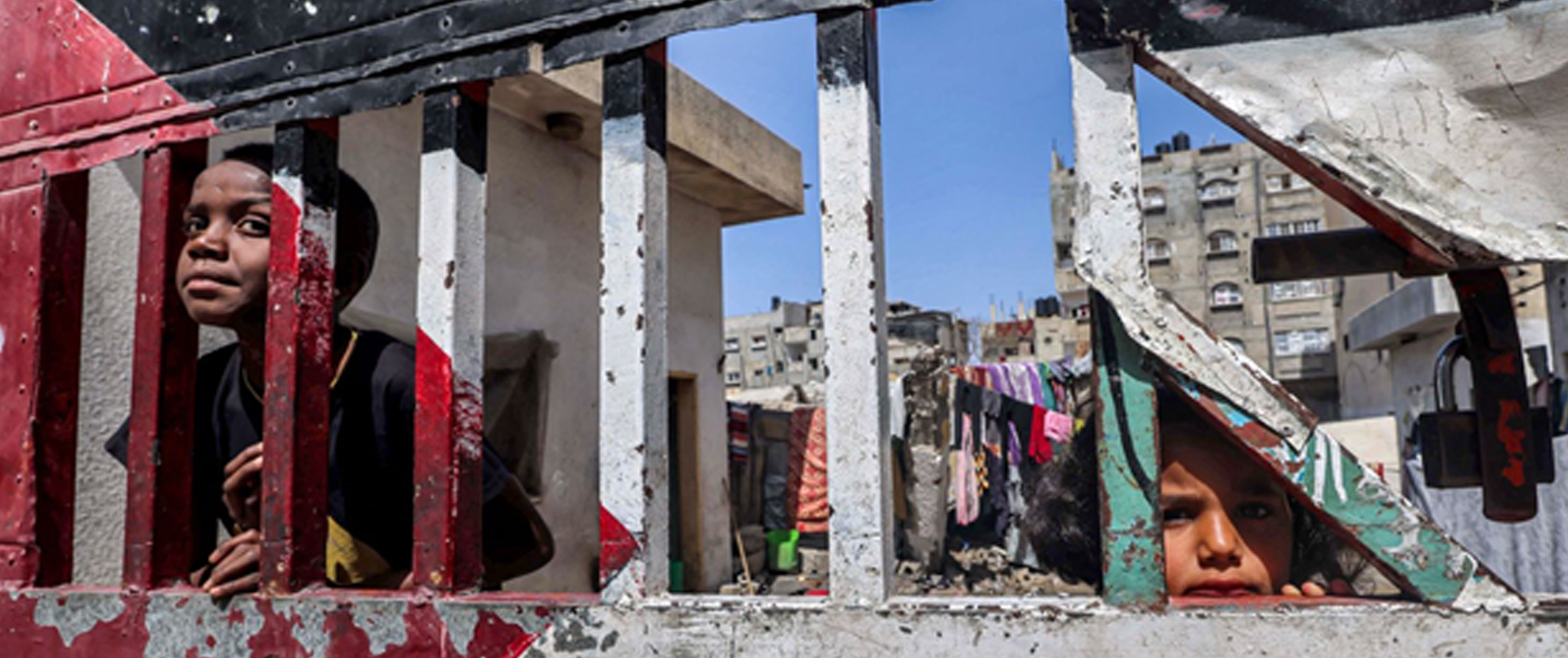In conclusion, the plight of Rafah and the broader Palestinian struggle serve as a stark reminder of the ongoing battle against tyranny and injustice. The Muslim Ummah, guided by the enduring principles of Ashura, must rise to fulfill its responsibilities, demonstrating unwavering solidarity and support for the oppressed. This is the essence of true Hussainiat, a call to action that transcends time and place, urging us to stand for justice wherever and whenever it is needed.
By Sabzar Ali Sheikh
The poignant slogan “Every Day is Ashura and every Land is Karbala” resonates deeply within the hearts of Muslims globally. It encapsulates the timeless struggle against oppression, reflecting the eternal relevance of Imam Hussain’s stand at Karbala. Today, the harrowing scenes in Rafah and other parts of Palestine evoke the spirit of Karbala, drawing parallels between the suffering of the innocents and the cries of Imam Hussain (AS) for justice and assistance. As the world watches in dismay, the Muslim Ummah is called to action, compelled by both religious duty and humanitarian obligation.
The Plight of Rafah: A Modern-Day Karbala
Rafah, a city straddling the border between the Gaza Strip and Egypt, has become a symbol of the Palestinian struggle. It is here that countless children, women, and senior citizens cry out for help, reminiscent of Imam Hussain’s plea at Karbala: “Is there anyone who can help me?” The silence in response to these cries is deafening, mirroring the isolation faced by Hussain and his companions.
The Muslim Ummah, a global community bound by shared faith and values, holds significant responsibilities. Muslims must raise awareness about the injustices faced by Palestinians. Utilizing social media, public demonstrations, and educational forums to highlight their plight can mobilize global opinion and pressure political entities to act. Muslim-majority countries should leverage their political influence to advocate for the rights of Palestinians. This involves diplomatic efforts, supporting resolutions in international bodies like the United Nations, and using economic sanctions or incentives to influence policy changes.
Providing financial and material aid to alleviate the suffering in Gaza and other affected areas is crucial. Establishing and supporting charities and NGOs that deliver food, medical supplies, and educational resources can make a tangible difference.
The Ummah must transcend political and sectarian divides to present a united front. Solidarity among Muslim nations and communities worldwide can amplify their voice and effectiveness in championing the Palestinian cause.
The silence and inaction of many Muslim-majority nations are perplexing and disheartening. This apathy can be attributed to several factors:
Political Alliances and Economic Interests: Many Arab nations and other Muslim countries have prioritized political alliances and economic deals over the Palestinian cause. These relationships, often involving significant financial investments, complicate their ability to take a firm stand against Israel.
Internal Conflicts and Instability: Numerous Muslim-majority countries are grappling with their internal conflicts, political instability, and economic challenges, which detract from their capacity to focus on external issues.
Fear of Repercussions: Taking a strong stand against Israel can result in political and economic repercussions, particularly from powerful allies like the United States. This fear often paralyzes nations from acting in favor of justice.
In contrast to the silence of many governments, students, teachers, and social activists across the globe have risen to the occasion. By raising the Palestinian flag at their graduation ceremonies and organizing protests, they embody the spirit of resistance and solidarity reminiscent of Imam Hussain’s companions. These acts of defiance and support are crucial in keeping the Palestinian cause alive in public consciousness.
Imam Khamenei, the Supreme Leader of Iran, likens the current struggle to the message sent by Imam Hussain to Habib Ibn Mazahir, calling upon Muslims to rise and support the oppressed. This call to action is not just a reminder of past sacrifices but a directive for present and future generations to uphold justice.
Muslims around the world must embody the principles of Hussainiat – standing firm against oppression, advocating for the marginalized, and striving for justice. The Muslim Ummah must wake up from its slumber, raising its collective voice against all forms of occupation and injustice. By doing so, we not only honor the legacy of Karbala but also contribute to a more just and humane world.
In conclusion, the plight of Rafah and the broader Palestinian struggle serve as a stark reminder of the ongoing battle against tyranny and injustice. The Muslim Ummah, guided by the enduring principles of Ashura, must rise to fulfill its responsibilities, demonstrating unwavering solidarity and support for the oppressed. This is the essence of true Hussainiat, a call to action that transcends time and place, urging us to stand for justice wherever and whenever it is needed.



